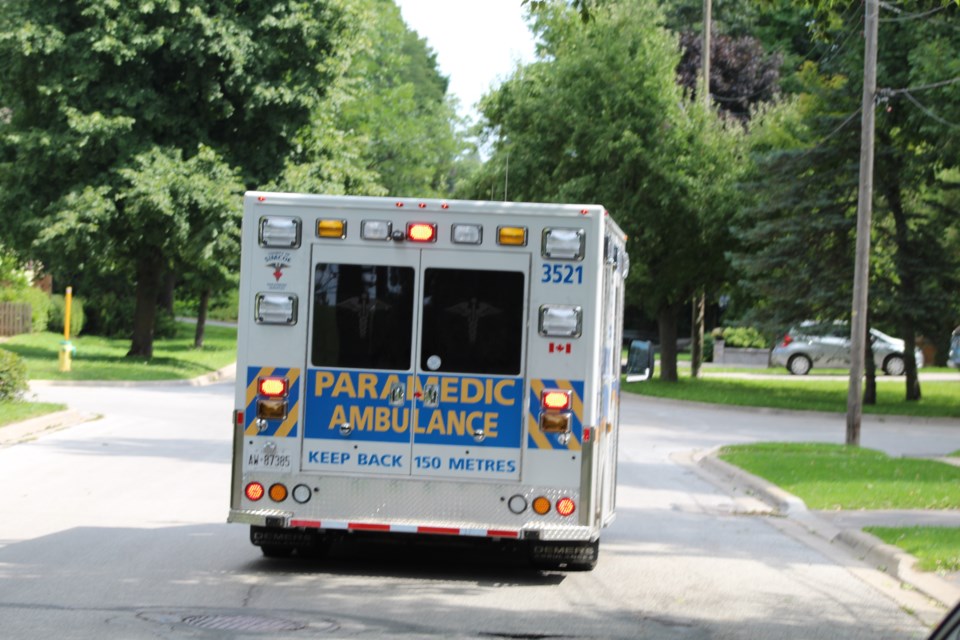Talk of amalgamating ambulance services in Ontario had some municipal officials scrambling into action to get to the bottom of things.
By Wednesday, there seemed to be a heightened level of reassurance that no paramedics would be losing their jobs, regardless of what the Ford government's restructuring plan — which was hinted at in last week's budget — ends up looking like.
An internal email from the Association of Municipalities of Ontario (AMO) to its 444 municipalities informed them Monday the government would be reducing the number of paramedic services from 52 municipal agencies and six First Nations paramedic services to 10 regional operations.
The news that Premier Doug Ford said he was reviewing ambulance services in the province soon found its way onto social media, followed by news reports.
The move took the province's paramedic services by surprise.
The Ontario Association of Paramedic Chiefs (OACP) posted a message on its website saying it was “unexpected" news that "the province intends to reduce the number of paramedic services".
On her Twitter account, Newmarket-Aurora MPP and Minister of Health and Long-term Care Christine Elliott responded to an AMO post about the need for collaboration regarding any possible changes to ambulance services:
"As we modernize our health care system, we will empower paramedics to improve the already great emergency care they provide," she wrote. "We are working with front-line paramedics and our municipal partners to ensure emergency health services can better meet the needs of Ontario’s communities."
However, what exactly the restructuring of paramedic services means remains to be seen.
Across Ontario, municipal governments spend about $720 million on paramedic services, with the province contributing about $580 million.
York Region's 2019 operating budget for paramedics services is about $83.7 million, with funds allocated to hiring 12 new paramedics in 2019 "to respond to the needs of a growing and aging population."
"Paramedic Services, long-term care homes and other seniors’ services are already feeling the impacts of an aging population," states the regional budget document. "The seniors cohort will continue to grow faster than any other age group in the population, going from 162,000 residents, or almost 15% of the total, in 2016, to a projected 311,000 residents, making up 21% of the population, in 2031.
"This is a reflection of a trend across Canada, including Ontario. The province and service providers are exploring more ways to manage volume and match level of care to patients’ needs. Pending changes to the Ambulance Act and modernization of the dispatch system would support options other than transport to emergency departments where appropriate."
Calls are expected to increase from 88,046 in 2019 to 105,736 in 2022 and become increasingly more complex.
Three paramedic stations are under construction, and four are in the design stage with construction scheduled to begin early this year. By 2022, there will be a total of 27 stations across the region. In 2018, two new stations, in East Gwillimbury and Newmarket, began operation and an additional two, in Newmarket and Markham, will become operational this year.
The review would come down to how critical emergency services can be improved, Barrie-Innisfil MPP Andrea Khanjin told BarrieToday.
"It's just part of our modernization efforts to get back into the 21st century," she said. "We've said it over and over, that we really respect our front-line service members ... and we want to create a more effective system."
After receiving more clarity on the idea of reviewing ambulance services, municipal officials have since been told by provincial politicians that there will be ongoing discussions around any move.
"The Ontario government has assured us that it will be working with and collaborating with AMO, municipal governments and stakeholders as it looks at ambulance services and public health services," AMO executive director Pat Vinini said in a statement.
— with files from Debora Kelly



